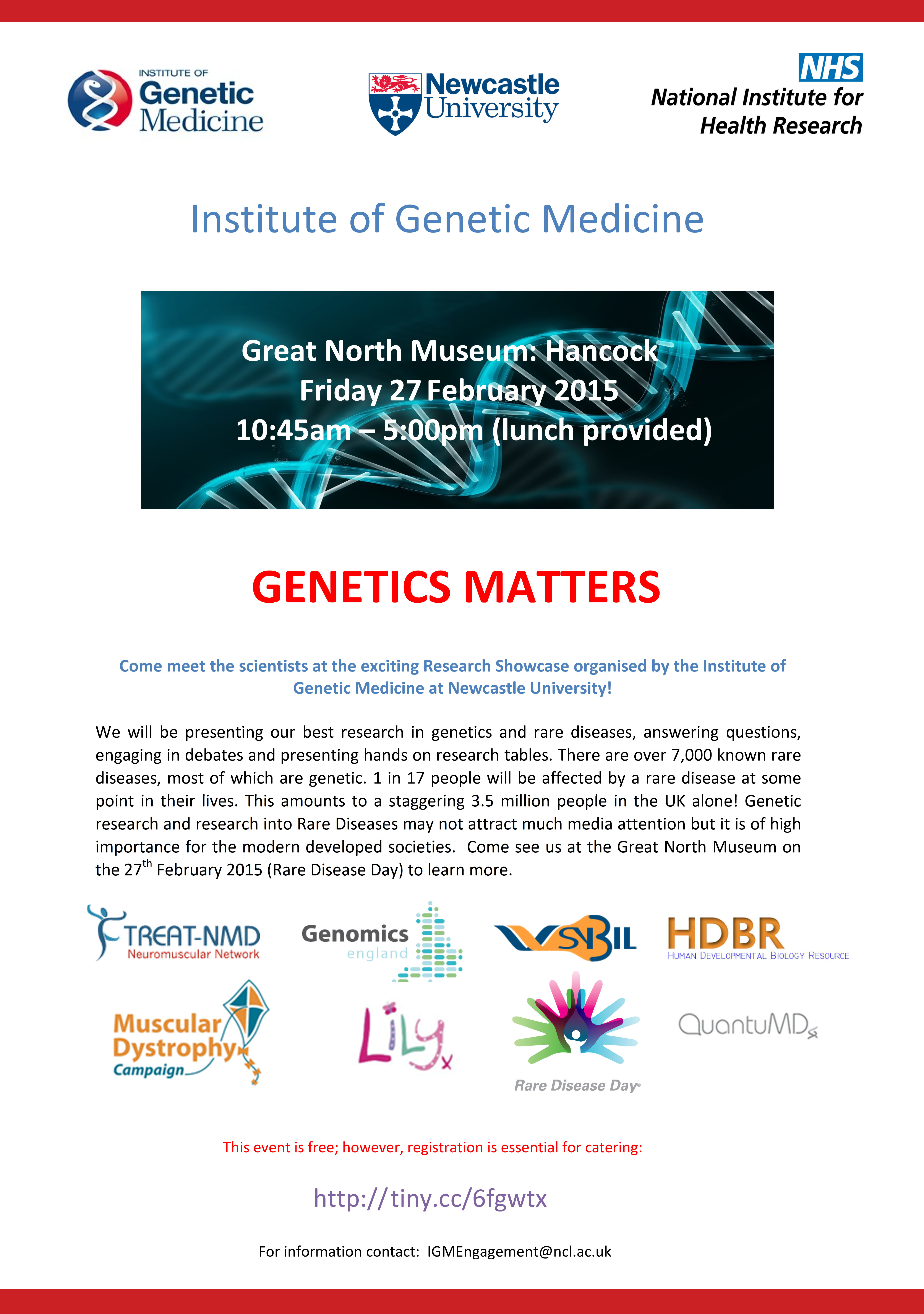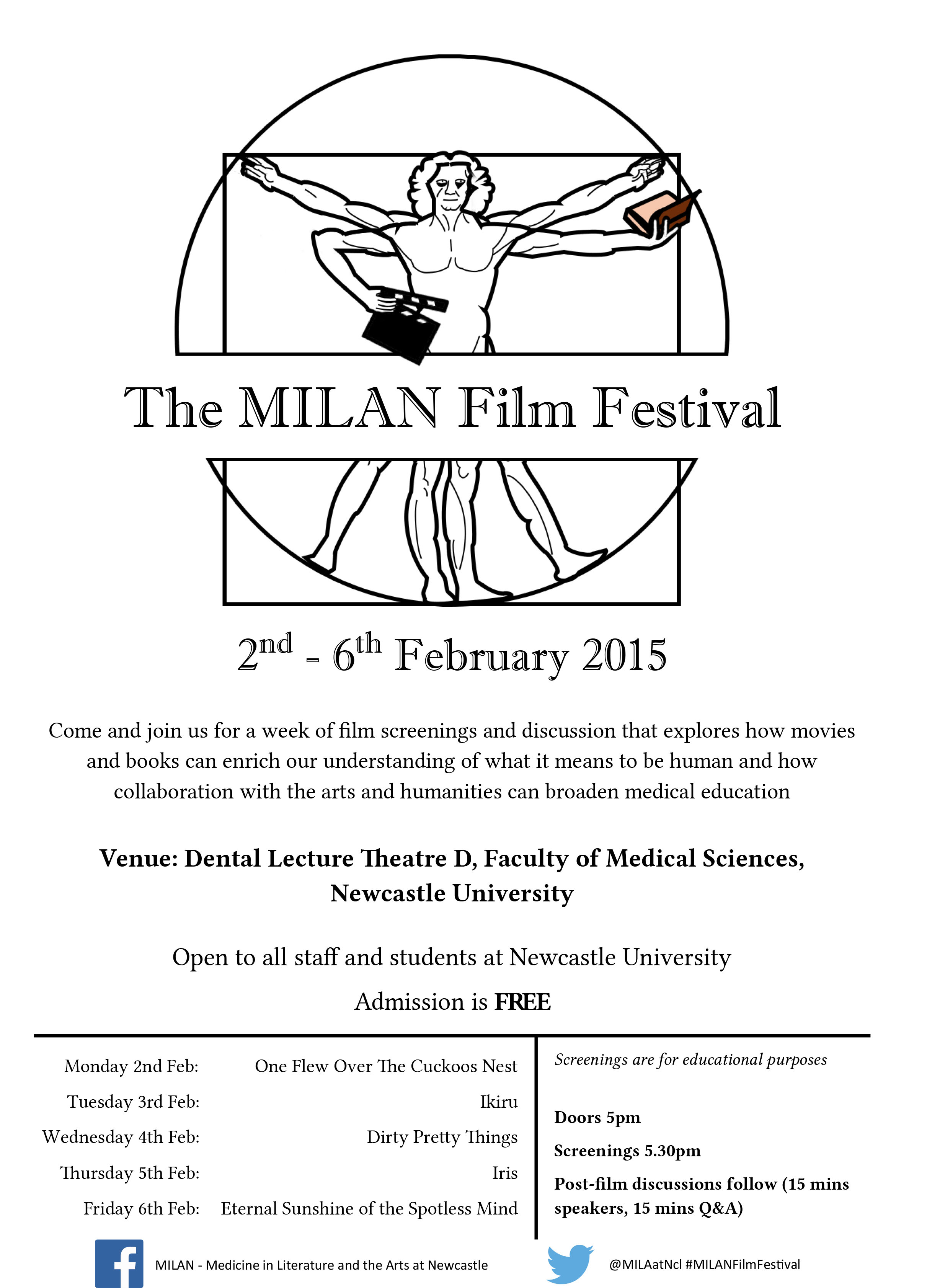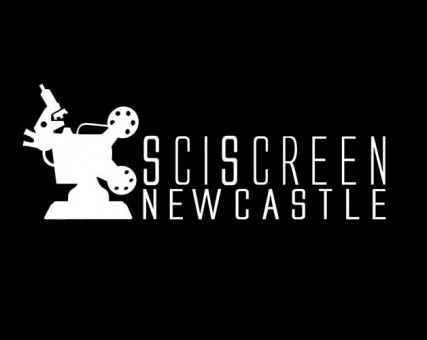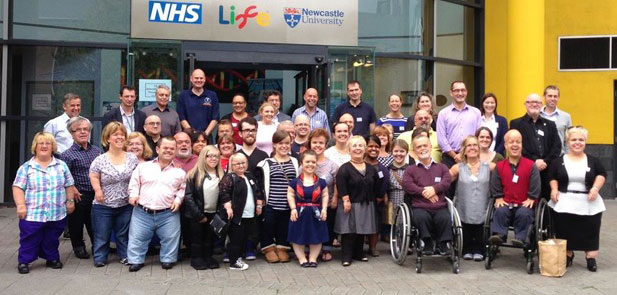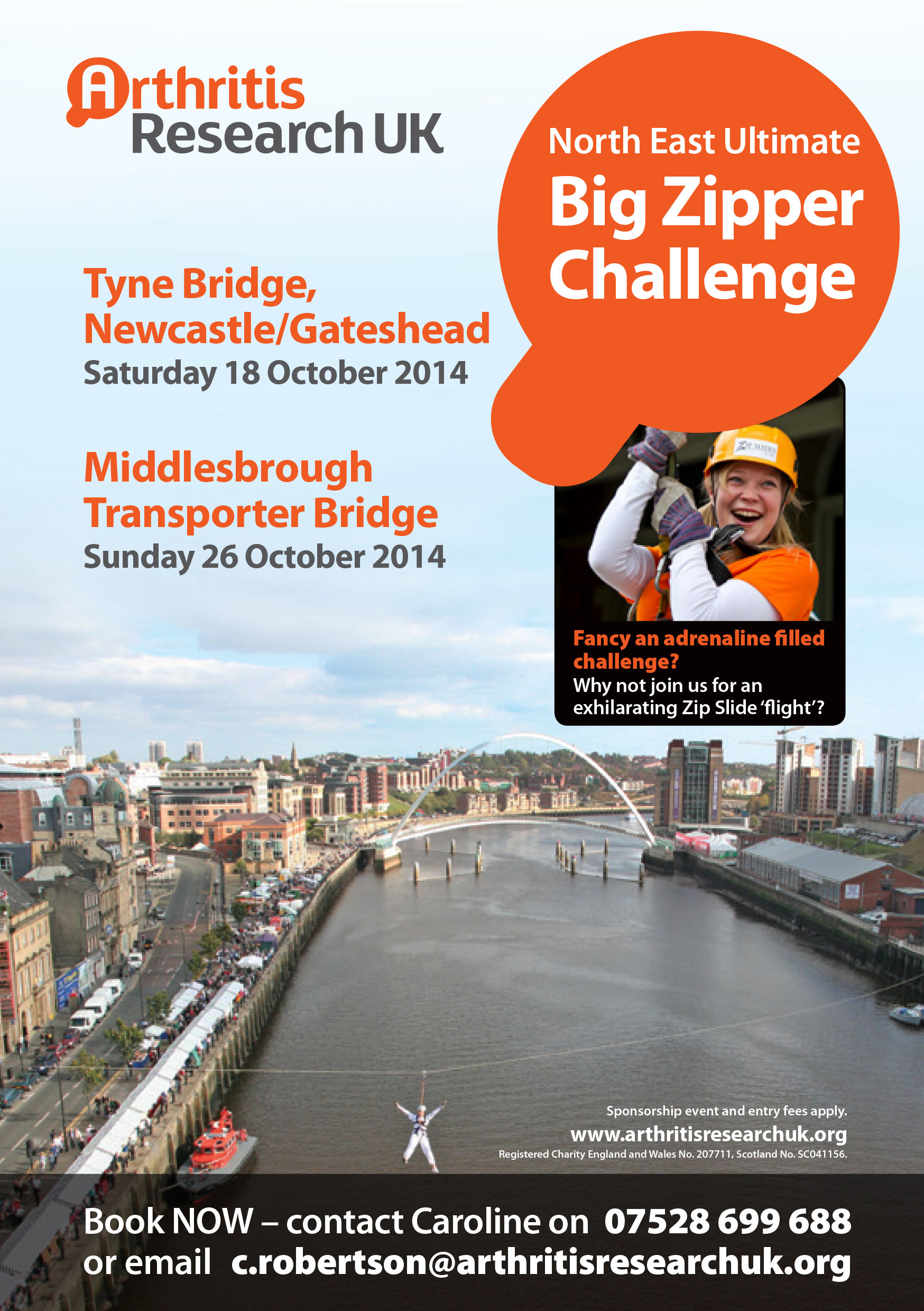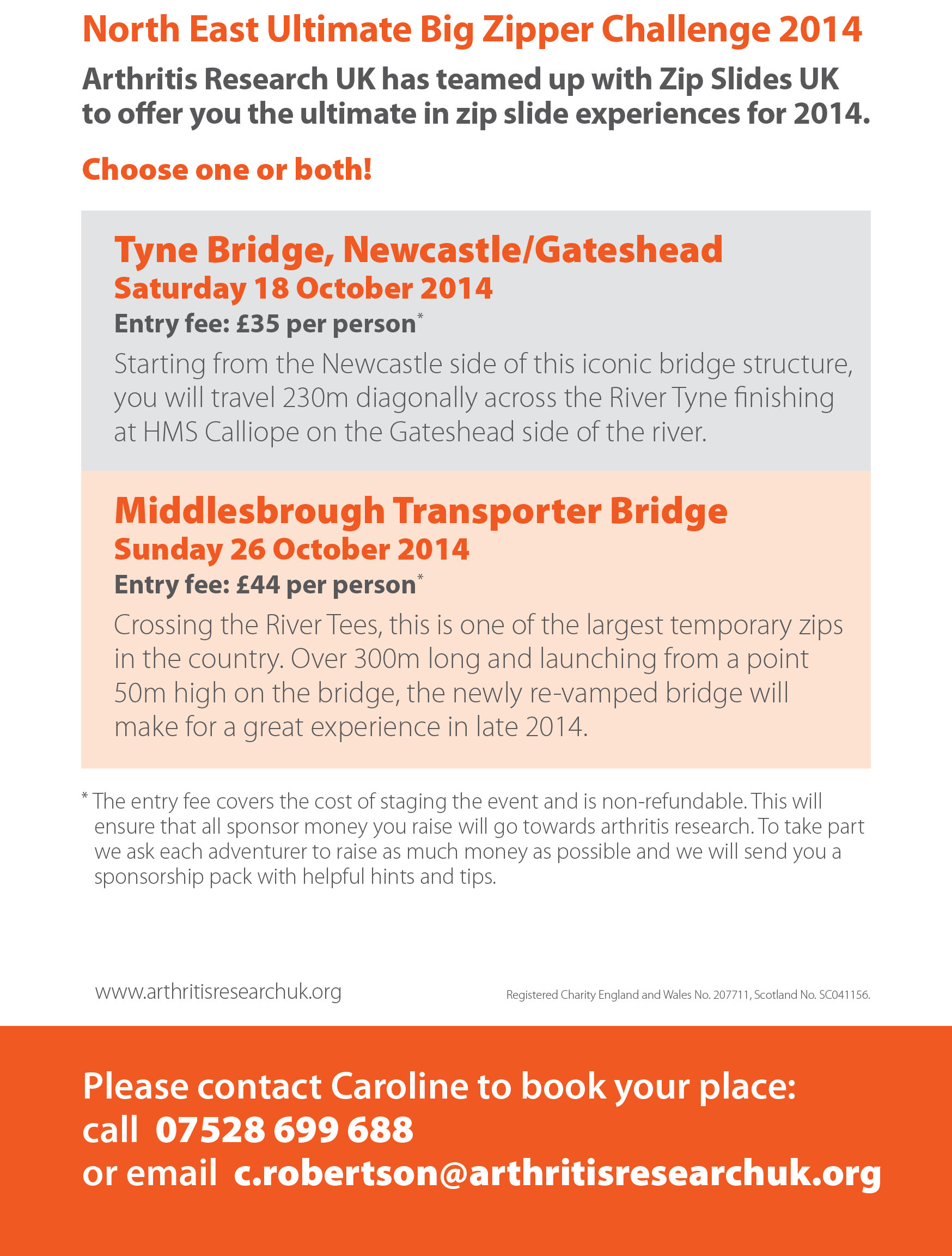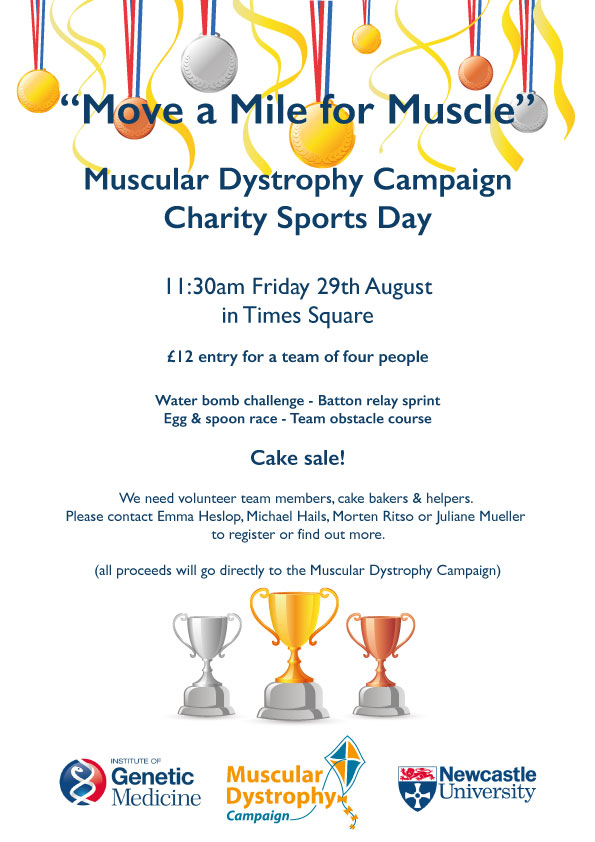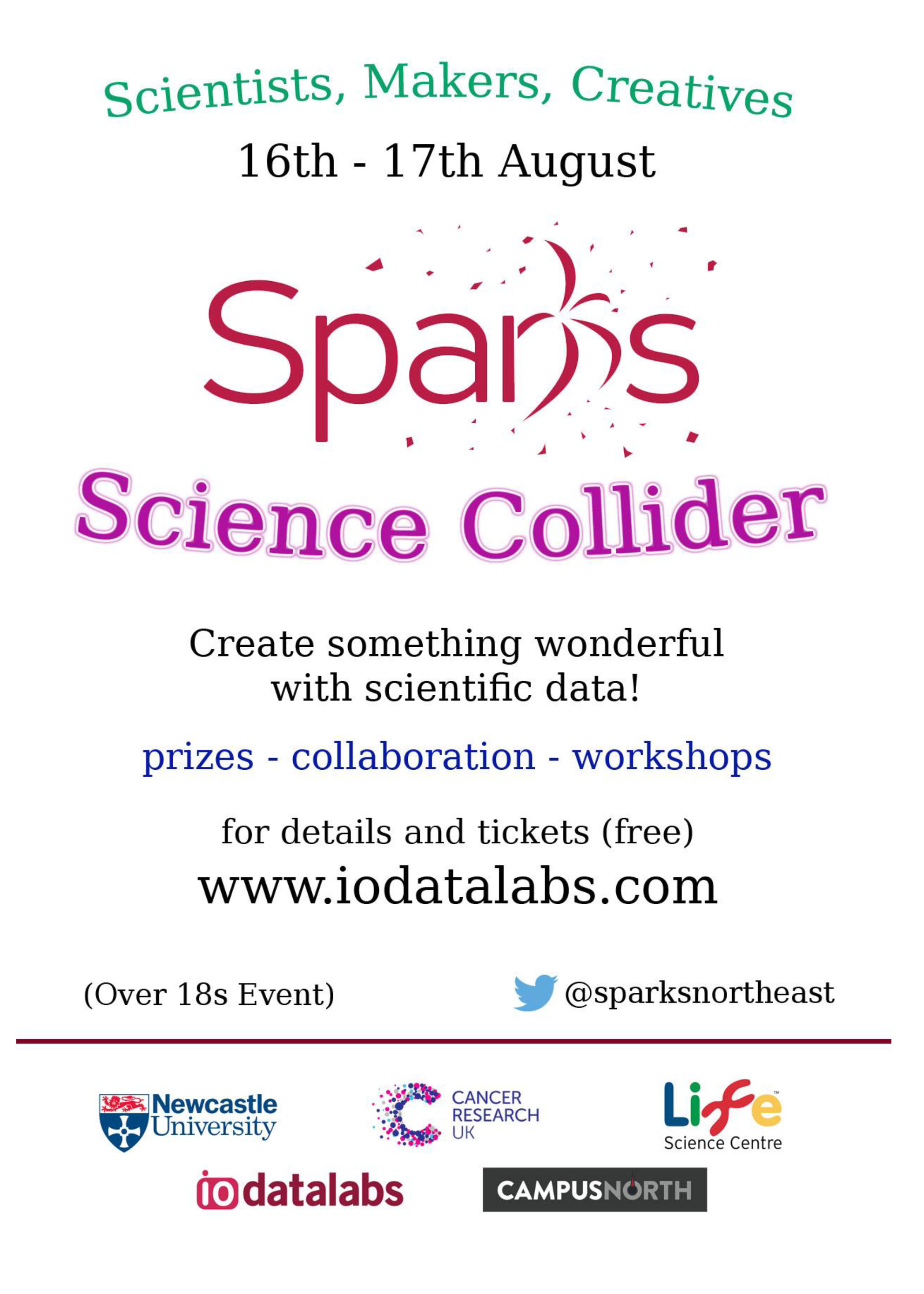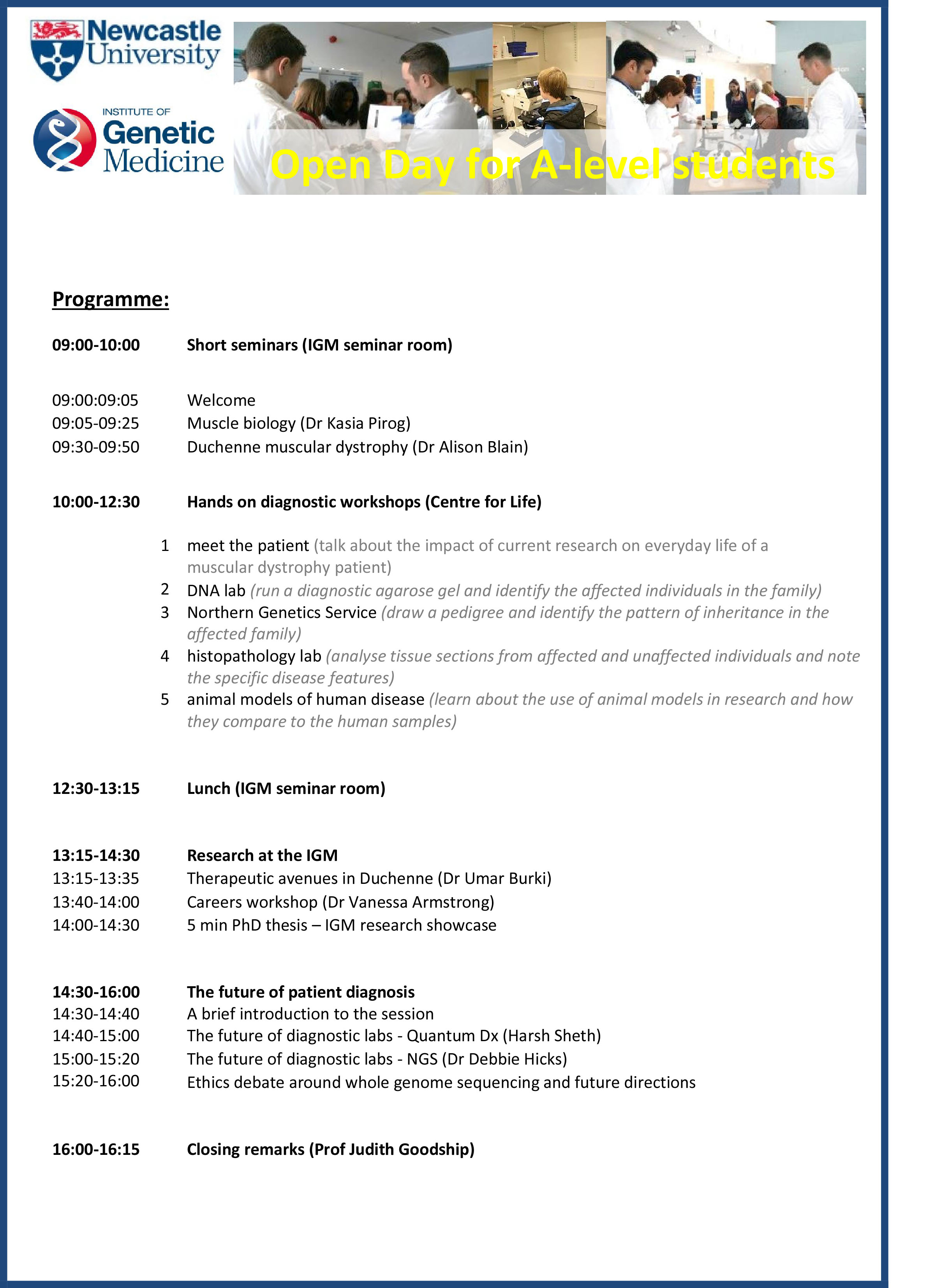(from Newcastle University press office)
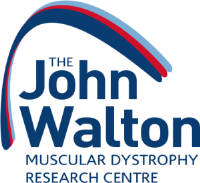
Newcastle University has announced the launch of the John Walton Muscular Dystrophy Research Centre to support its world-leading research in the field.
Housing a team of 80 experts, led by Professors Kate Bushby, Volker Straub and Hanns Lochmüller, the research carried out in the Centre will focus on three key areas: the development of translational research, innovative clinical trials and international networking.
Professor Kate Bushby, Action Research Chair of Neuromuscular Genetics Newcastle University and co-ordinator of the European Joint Action on Rare Diseases, said: “One of the great strengths at the new research centre is the collaborative and multidisciplinary approach, both within the team and with other leading experts around the world. Genetic neuromuscular disease includes some very rare conditions and it is through establishing these partnerships that the biggest strides towards improving diagnosis, care and treatment for patients can be made.”
Professor Hanns Lochmüller adds: “The launch of the Centre represents more than 50 years of excellence in muscular dystrophy research and care at Newcastle University and in the Newcastle upon Tyne Hospitals NHS Foundation Trust. As a leader in shaping the European muscle disease landscape, the Centre represents the cutting edge of research and is at the forefront of innovative therapy development.“
The Centre is being named in honour of former Dean of Medicine and distinguished neurologist, Lord John Walton. Along with Professor of Medicine Fred Nattrass in 1954 John Walton published a keynote paper in Brain on the differential diagnosis of muscular dystrophies. They were the first to combine detailed clinical and genetic data and were instrumental in early developments that led to the formation of the Muscular Dystrophy Group as an independent charity.
Professor Volker Straub comments: “We are delighted to recognise Lord Walton’s enormous contribution to the field of muscle disease research and patient care in the naming of our research centre and pleased that he is able to join us in the science, discussions and celebrations at the launch event.”
Professors Bushby, Lochmüller and Straub lead the John Walton Muscular Dystrophy Research Centre and hold joint appointments between Newcastle University and the NHS. With over 115 publications in the last three years, their time is split between research and clinical commitments, both of which focus on neuromuscular disease, and they provide leadership across the Centre.

